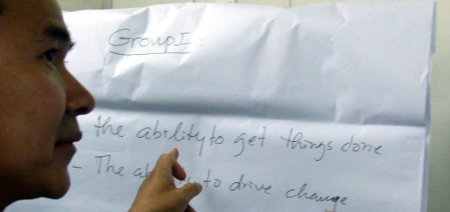
The study of capacity and the practice of capacity development are dynamic and ongoing processes which are happening against the background of growing global inequity and limited progress on alleviation of poverty. Capacity development is about change and transformation through designing and facilitating culturally appropriate local solutions to development issues at a large enough scale to make a real difference for human development. The capacity development process is an endogenous one, led by national actors, which may (or may not) be supported by development partners. It is therefore up to the national actors to set their own capacity development objectives within their political and governance systems. Capacity development is also a complex process and inherently political as it deals with change, which leads to gains for some and losses for others that need to be managed. Ownership is a prerequisite for sustainable capacity development, as is having clarity about whose capacities are to be developed and for what purpose.
This section outlines the core concepts of capacity development:
- Capacity: a summary of the core concepts (levels, types, and themes)
- Capacity: what is it?
- Capacity development
- Toward a shared understanding
Next section: Summary of the core concepts